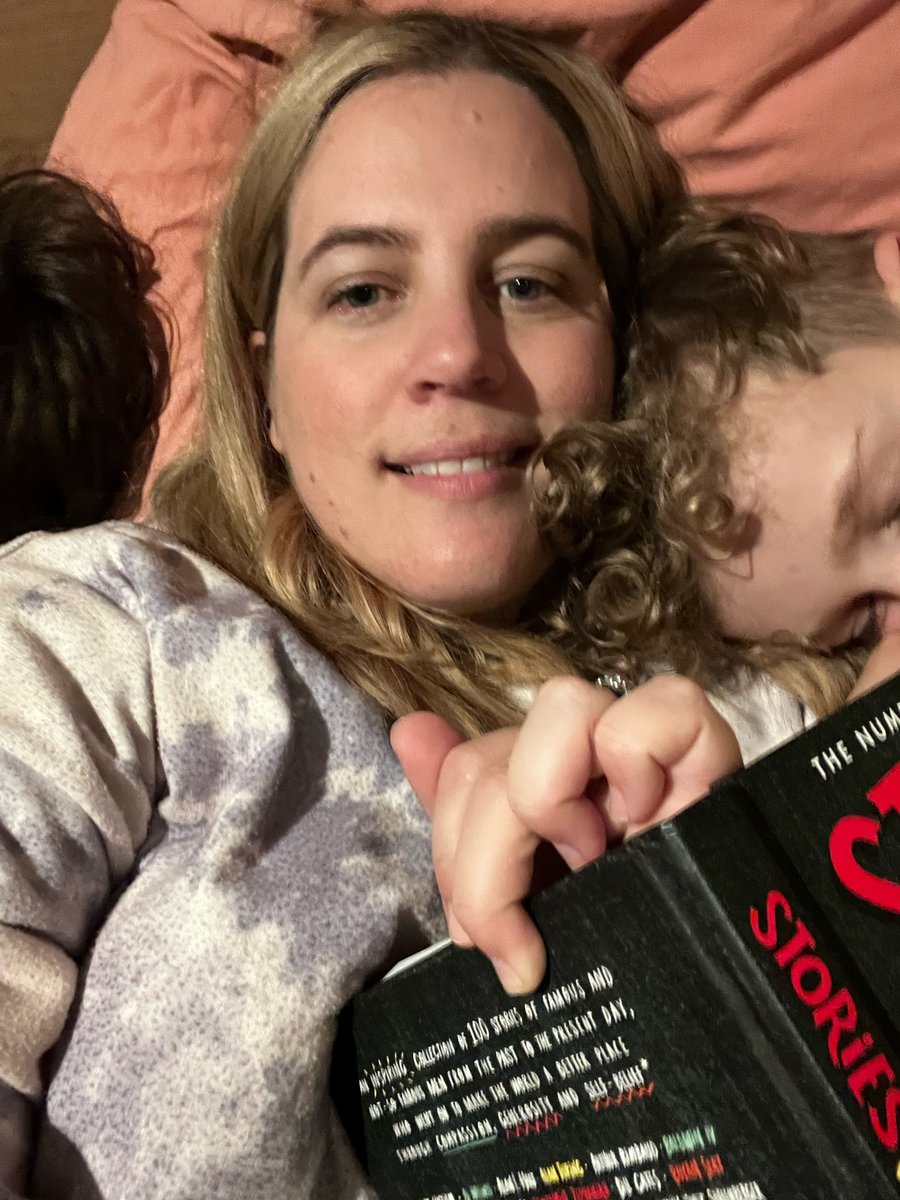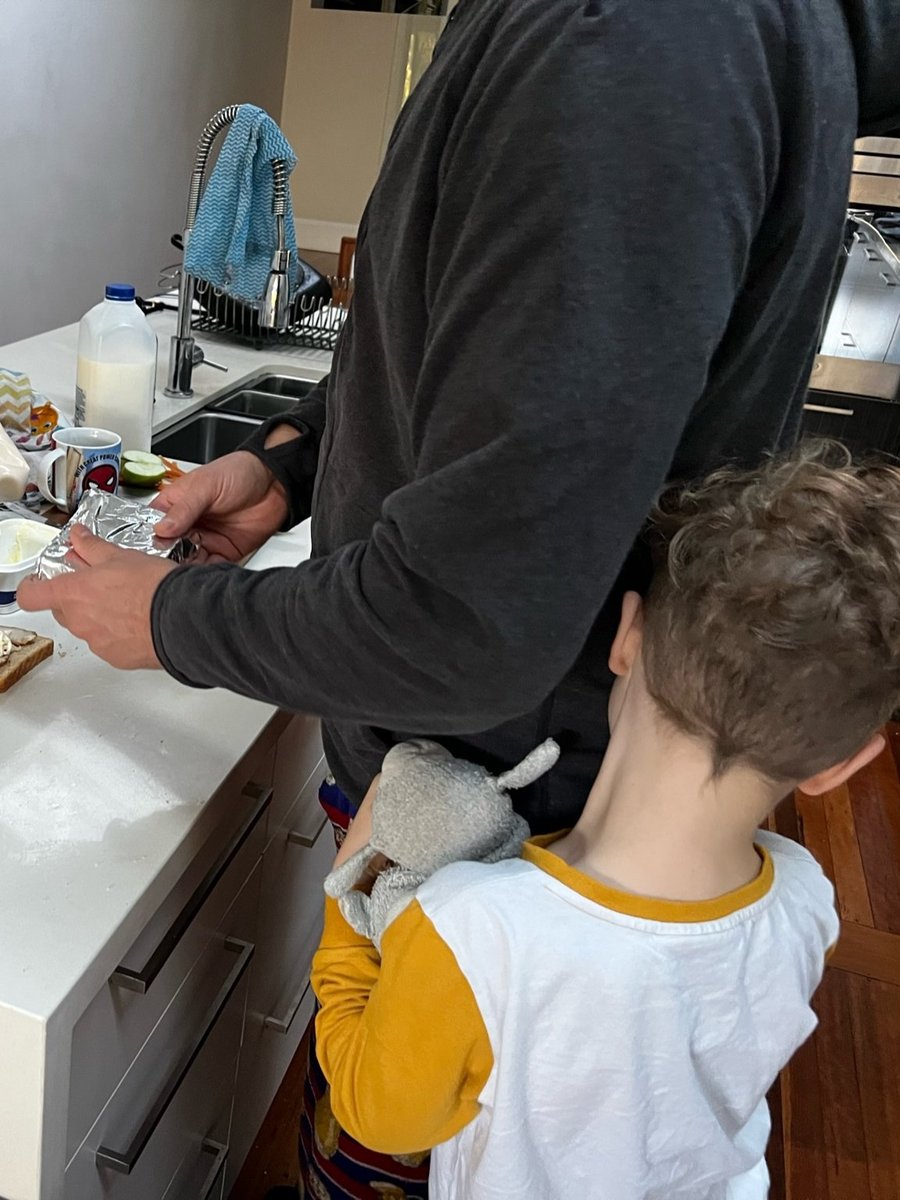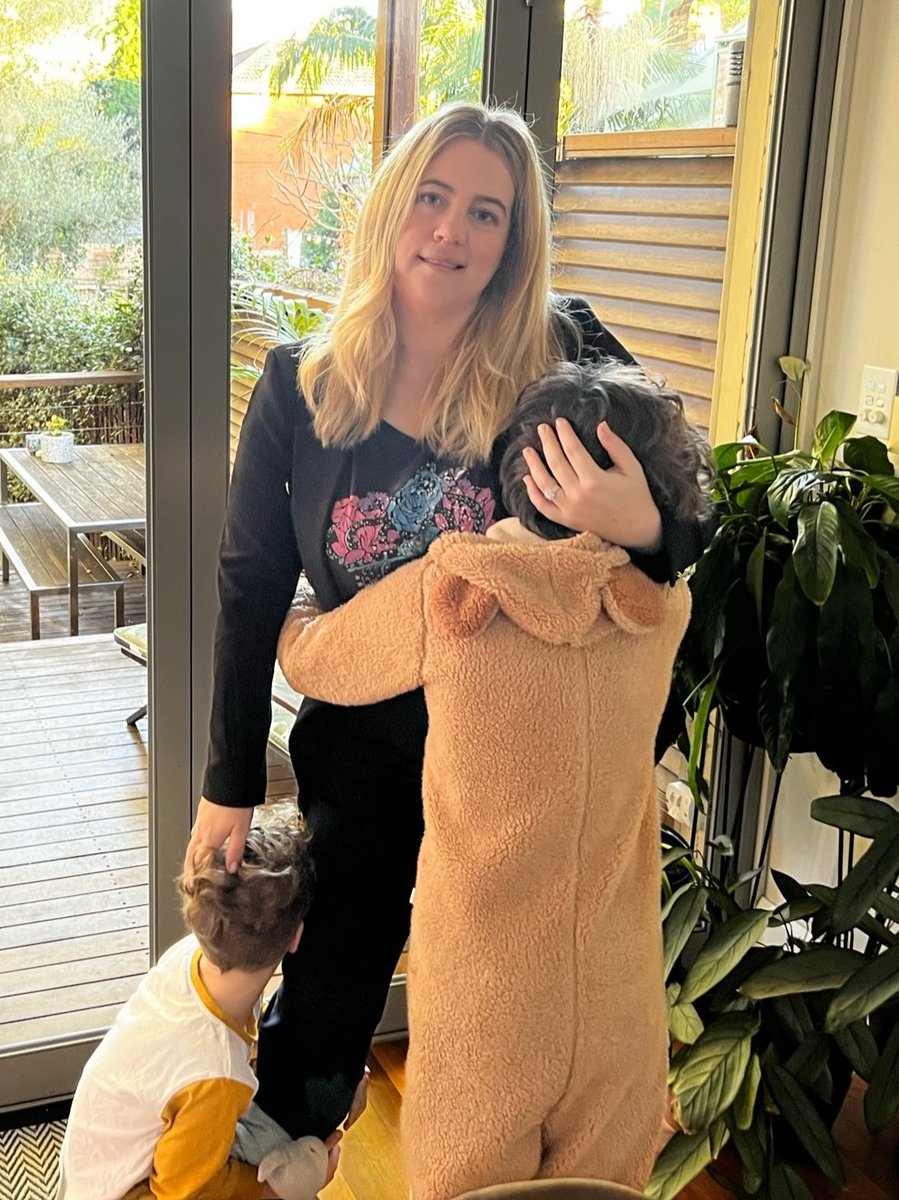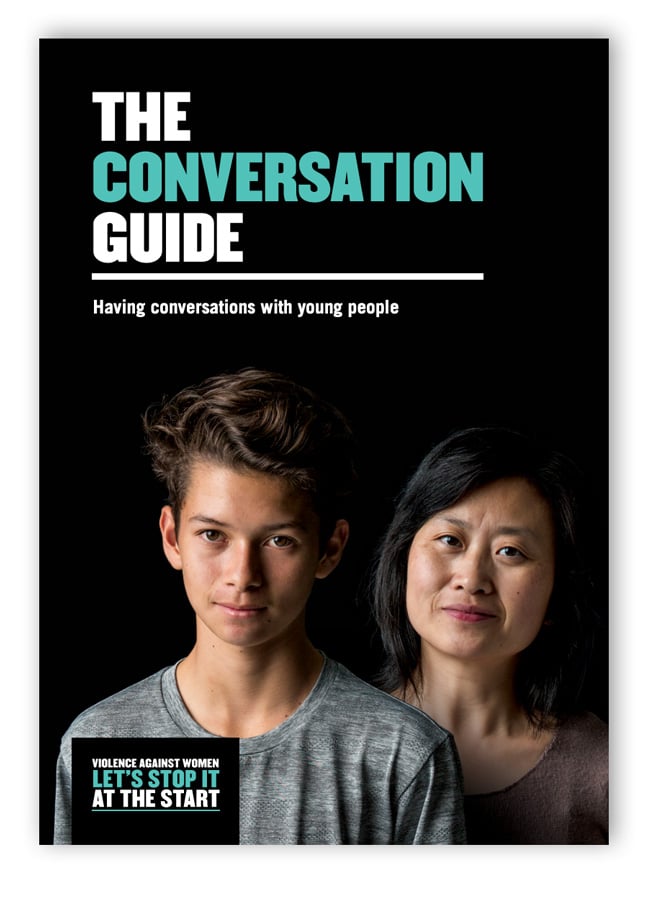Stop it at the Start is an important campaign talking to parents, family members, teachers and mentors of kids between 10 and 17, that aims to help break the cycle of violence against women. The message encourages us to reflect on our attitudes, understand how our actions may contribute to the cycle of disrespect and violence, and have conversations about respect with the young, impressionable people we’re raising and influencing.
It’s important we understand the cycle of violence. Not all disrespect towards women results in violence. But all violence against women starts with disrespectful behaviour.
Early on in our parenting journey I had a conversation with my husband. He made a silly joke about me in front of the kids. I don't remember exactly what it was. I knew he was joking and he didn't mean any hurt. But how could our young kids tell the difference?
So I set a firm boundary that the way my husband spoke of me, or towards me (even in jest) in front of the kids needed to be a direct reflection of how we want them to treat women in their lives (platonically or romantically).
When they were little, it felt less complex. There were fewer nuances. I was at a parenting seminar many years ago with the queen of common sense parenting, Maggie Dent, and she recommended having three golden house rules that is simple enough for them to understand:
We don't hurt ourselves.
We don’t hurt each other in this family.
We don't hurt people in the world.
I love that because all three are equally important and the meaning behind each can grow with them in complexity as they do.
There was plenty of nodding from the group while they processed this new information, even a question on whether a text message would be an approved way to do so in future, when they eventually have phones. A no on that one, but a great question nonetheless!
And apparently this young boy did have that conversation himself with his primary school girlfriend, delivering that message directly himself. And I felt in some small way, I had contributed to someone not being as hurt or embarrassed being broken up with. That my son and his friends learnt an important lesson. Respect doesn't end when a relationship does, even if you’re ten years old.
As my kids will soon be teenagers, I find myself navigating completely new territory from the role as parent. How much information is needed (and when should my husband and I be delivering it exactly) as their little lives grow ever more complex?
And it's so much more complex than when I was growing up. Social media, sexting and the ease of access to the internet and a video camera at all times.
I recently learned of a brilliant resource, The Conversation Guide. It has a whole free map and checklist for talking about respect with our kids under 17. It’s broken down into different topics and conversation starters, with techniques to keep important conversations open and rolling.
These are the things we never read about in parenting books. But it’s crucial knowledge for us to impart.
It has helpful advice, like listening out for cues from your kids, and how parents like me can be ready to respond. Sometimes unexpected conversations can reveal things you didn’t know about your children. Someone may have picked on them at recess, or a friend may have pressured a girl into doing something she didn’t want to.
If this does happen, The Conversation Guide’s advice is to stay calm and keep listening so your kids don’t shut the conversation down based on your initial reactions.
It even has examples of questions you could ask.
If one of your friends was being disrespectful to you, how would you feel? What would you do?
If one of your friends was being disrespectful to someone else, how would you feel? What would you do?
If you ever felt unsafe around someone, where would you go for help?
I’ve been using The Conversation Guide, as well as my other crucial resources: as always, the parent friends in my life with teenagers, who have already been through the next chapters that I am embarking on with my own kids.
Back in the day, we thrived in communities for a reason and just because we don't share the same cave now, doesn’t mean we shouldn’t lean into advice from others who have learnings to share.
Here are some of my parenting village with their insights on the conversations they’re having with their kids.
Adam*, dad to three teenagers, step dad to tween and teen girls.
I’ve discussed with them all the different facets of respect, and drawn the link for them to domestic violence, coercive control and what that entails.
Specifically educating them through examples I see at work (as a Mental Health Nurse) and leading by example in my interactions with them, their mother and my current interactions with my new wife.
It’s not only what I say to the kids about respect, but what I model in my daily interactions with women in general. I’m finding they observe more than they listen, being teens.
I tend to rather wait until a real life example has happened in their world, then use it to talk through the experience with them and we reflect on the behaviour.
Sally*, mum to two teenage boys 15 and 13.
My eldest doesn’t worry me as he has a really good emotional awareness and is respectful. I do worry about my youngest sometimes. He’s neurodiverse, and is impulsive with some aggression issues.
I find talking in the car is best, when side by side, where tricky conversations with them can be had with their full, captive attention (and they don’t have to feel awkward with direct eye contact!). Sometimes I make up a story to give an example: ‘a mum sent me a concern about this video going around’ – just to open the conversation.
Or I might bring up something that happened in the movie we watched the night before. An example of disrespectful behaviour from a character and ask them questions about what they thought about it. That way, I find I can get their sense of what they think of the situation and develop a discussion about the behaviour.
I always say to them ‘make good choices and be guided by your inner self and trust your instincts.’
Holly*, mum to two teenage girls and high school counselor.
With my own daughters I often use TV shows or characters in movies as a springboard for important conversations too, and I've been doing that since they were little. For example, I would talk about how warped it was for Cinderella, in how she wasn’t allowed to make many of her own decisions, and valued in many parts just for her looks.
As they have gotten older I have layered that and brought up more complex issues of respect around gender inequality, objectification, and they’ve picked out the scenes and storylines they thought were problematic.
My daughters aren’t at the age where they are having their own romantic relationships just yet. I've definitely had many conversations with teenage students at school, with ongoing conversations around respect, particularly what aggressive cues in conversation and consent look like.
When I’m talking to a student who has experienced a situation where they have been disrespected, I validate their feelings and explore the reason they are feeling a certain way. If they're distressed or crying, I just explain they probably don't feel safe. Often they don't feel safe because of the power dynamic. So, we basically unpack it around why that is.
Particularly after two years of lockdown, there's a lot of gender socialising and even socialising in general that we have to help untangle and reintroduce because these poor kids have missed out on key developmental milestones of interacting while going through puberty.
Often with teenage girls I point out their maturity level compared typically to a boy's maturity level of the same age, and I ask them about particular situations: ‘what do you think their expectations are?’ and ‘what do you think your expectations are?’ I spend a lot of time unpacking this with them and talking through boundary setting.
Teenagers don't always like being told what to do, so you probe and ask questions and get them to think ‘how could I be respectful?’ So, in my line of work I have learnt as a parent, to not shove information down their throat. I'm trying to be curious and listen as much as possible and validate their experience.
It’s key to keep opening up opportunities for conversations around respect, and when they start to share a personal experience, something they’ve witnessed or a scenario they’re trying to make sense of – validate their feelings, with curiosity and really deep, engaged listening.
Because the cost of avoiding or dismissing these conversations from an early age is honestly too high.
Stop it at the Start is the Australian Government's award-winning campaign to reduce violence against women and their children. Taking a primary prevention approach, the campaign encourages adults to positively influence young people aged 10-17 by having open, ongoing conversations about respectful relationships and gender equality.
As parents, family members, teachers, coaches, employers and community leaders, we all play a role in encouraging respectful behaviours in young people. When we bring up respect with our kids, respect grows.
If we come together to promote respect, we can make a positive change for the next generation and for the broader Australian community.
*Name has been changed for privacy reasons.




